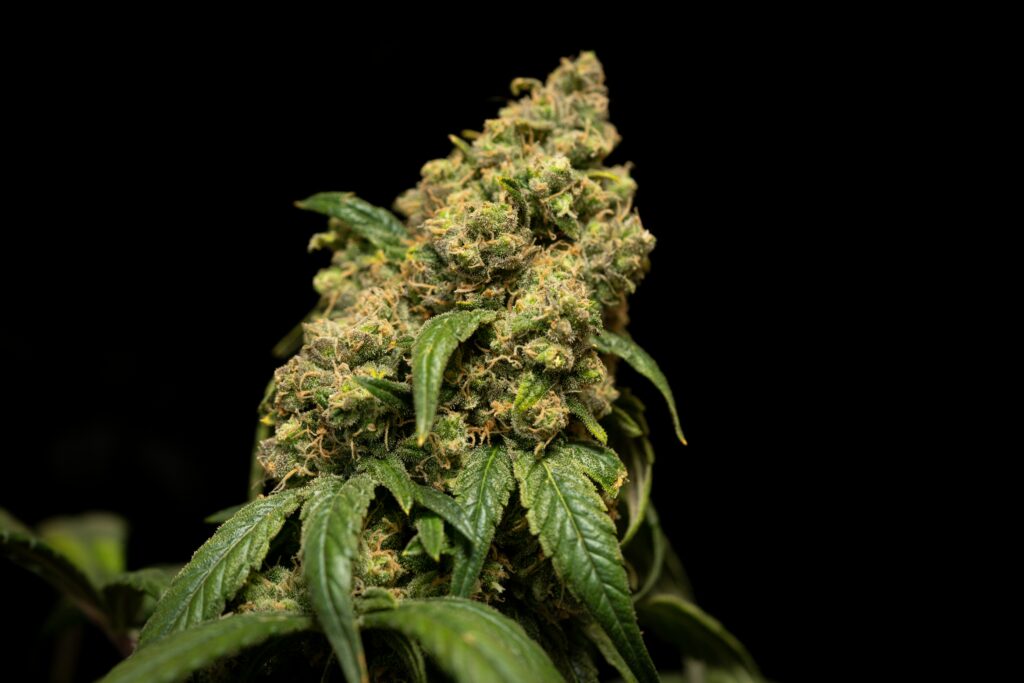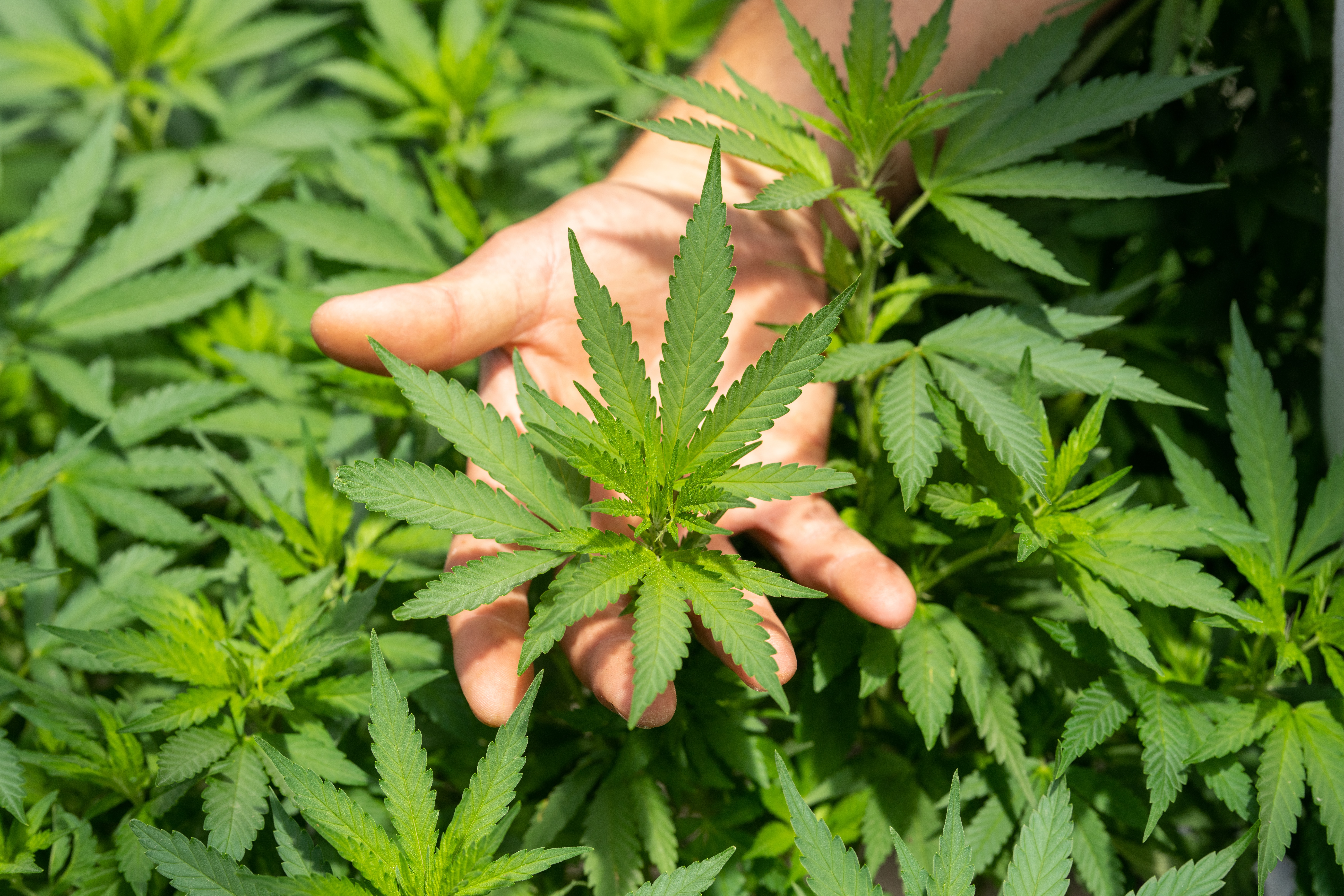Date of the last update: 04.08.2022
Maceration is an extraction procedure which yields a liquid oil extract of herbs. The macerate is an ideal ingredient both in the kitchen and in cosmetics. Depending on the herbs used, maceration extracts have soothing, regenerating, moisturising and antibacterial effects, they can even add flavour and aroma. Today, I am going to tell you how to macerate hemp and what other ways there are to extract the valuable compounds from this plant.
Hemp macerate is a valuable source of active substances, such as cannabinoids and ethereal compounds. As a result, it has both nutritional value and a high therapeutic potential. By preparing hemp oil macerate ourselves, we can easily use it as a seasoning and add a hemp note to our salad dressing. The presence of cannabinoids also makes it a good skin care product. It can be used in recipes for homemade creams, lotions, analgesic and anti-inflammatory ointments. Jojoba oil is an excellent base for a soothing and nourishing massage oil.
Table of Contents:
- Hemp as a valuable medicinal plant
- Methods for extracting herbs and hemp
- What is needed to make hemp macerate?
- What do you use the hemp macerate for?
You can read this article in 5 minutes.
Hemp as a valuable medicinal plant
Herbal medicine and its history is as long as the history of mankind. The tradition of using herbs and herbal ingredients dates back to ancient times. Different sources reveal that as early as in ancient Babylonia and Assyria chamomile, wormwood, liquorice, marigold and plantain leaves were used for medicinal purposes. The same is true for hemp. It has been used for centuries and the first reports reach back to Neolithic times. We can learn that they were used for medicinal, mystical as well as recreational purposes. In ancient China, they were used to alleviate conditions such as rheumatic pains, constipation and malaria, and were also helpful in treating female reproductive system diseases. Currently, the development of science and research allows for a more detailed understanding of how hemp and cannabinoids act on the human body.
Hemp is a remarkably versatile plant, with active substances found all over the plant. Still, mind that all these medicinal substances are not evenly distributed throughout the plant. The highest amount of valuable cannabinoids is found in the inflorescences of the hemp plant.
If you want to prepare hemp macerate yourself, you should take into account the origin of the material: if it comes from certified cultivation, what concentration of cannabinoids it has and how it was stored.
Methods for extracting herbs and hemp
Extraction, that is methods of obtaining valuable compounds from plants, can be done in a number of ways. They all have some pros and cons. As for hemp, inflorescences are the most valuable herbal material, as it contains the highest concentration of cannabinoids. Thus, it is easiest to make extracts from these parts.
Methods of hemp extraction:
- Infusion– it is the simplest method of extracting active substances from plants. It involves pouring boiling water over the plant material and waiting a while. Hemp is a lipophilic plant, so in order to extract more compounds you need to add a little fat (oil) to the infusion.
- Decoction – in the case of decoction, water is poured over the plant material (e.g. hemp inflorescences) and brought to the boil (as with infusion, a little oil needs to be added).
- Digestion – mainly used for hardened plant parts such as roots or bark. For hemp, we can use this method to prepare an extract from the roots, which also have a therapeutic potential.
- Juice – No additional solvents are necessary to prepare juice from the raw material. The juice is pressed out from leaves and flowers and is ready for immediate consumption. Hemp juice is rich in chlorophyll and acidic forms of cannabinoids.
- Tincture – it is a liquid alcohol-based plant extract. Alcohol is an excellent solvent to extract substances from plants, making tinctures the most shelf-stable form of herbal medicine. It is one of the best methods to extract cannabinoids from cannabis.
- Maceration – a beautifully simple extraction method yielding a clear extract. This herbal extract can be obtained by soaking the material in cold (at room temperature) or hot liquid. It can be oil-, glycerine- or alcohol-based.
You may also be interested in: Hemp cuisine – why include hemp in your diet?
What is needed to make hemp macerate?

To make the maceration extract we need the hemp plant and base oil. There are several ways of preparing this oil macerate. Depending on its intended use, you need to choose the right extractant, that is your solvent. This can be hemp seed oil, olive oil, rapeseed oil, coconut oil, jojoba oil or MCT oil.
Cold method
This is a simple but time-consuming process, so be patient!
You need 1:1 solvent-to-raw material ratio.
Place the crushed dried herb in a jar. You can sprinkle it slightly with 40% alcohol and leave for 10-15 minutes to release even more active compounds into the extract.
Pour the oil over the hemp so that it covers the entire plant material and let it sit for 2-3 weeks.
Do not forget to shake the jar from time to time. After that time, filter the macerate and pour it into a dark bottle.
Hot method
This method is much faster.
The finished extract can be ready in about 3 hours. Place the crushed raw material in a jar, you can also sprinkle it with alcohol and leave it for a while to activate.
After this time, pour in the oil of your choice. You can also use coconut oil or butter, which will become liquid under the influence of temperature.
Put the closed jar into a pot with water, so that the water covers 2/3 of the jar. Boil over low heat for about 3 hours. After this time drain the extract and pour it into a clean container.
What do you use the hemp macerate for?
Depending on the oil used, this hemp macerate can be used as a base for a protective and moisturising balm or an ointment for pain relief. In the kitchen, on the other hand, it can be used as a tasty and healthy seasoning packed with cannabinoids.
Check out also: Health from nature, that is herbal infusions straight from the meadow
Sources:
Szmerk P., Konopne ABC – gdzie teoria łączy się z praktyką, Grudziądz 2020

